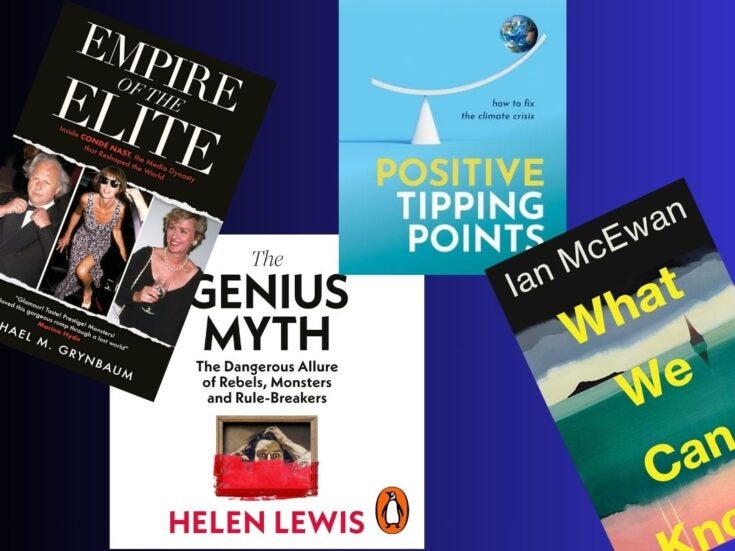
Boomerang: The Meltdown Tour
By Michael Lewis
Allen Lane, 240 pages
Review by Christopher Silvester
By Boomerang: The Meltdown Tour on Amazon
Kyle Bass, a Texas-based hedge-fund manager who did well out of shorting the sub-prime property market before the 2008 financial crisis, used to play the international strategy board game Risk as a kid, which led him to find out everything about a tiny country called Iceland, which was a key strategic location in the game. So when Iceland went bankrupt Bass understood why and was ahead of the game in identifying sovereign debt defaults as the new threat to global financial stability.
‘We’ve never had this kind of accumulation of debt in world history,’ he tells Michael Lewis, who’s writing a series of dispatches for Vanity Fair, visiting four countries and one American state with an economy bigger than three of them — California. His dispatches, collected in this concise, sharp and witty book, are what Lewis calls ‘financial disaster tourism’. As ever with Lewis, the analysis is pithily perceptive, but what make the dispatches so compelling are the quirky anecdotes he tells and the offbeat pen-portraits of the characters he encounters.
Iceland, a nation of fishermen where everyone claims to know Björk personally, turned itself into a hedge fund — Lewis calls it ‘Wall Street on the Tundra’. Its bankers believed they were ‘banking prodigies’ because risk-taking was part of their maritime tradition. One of those whom Lewis interviews says he had been hired to advise companies on currency risk hedging but had found himself drawn into ‘plain speculative trading’ on the grounds that ‘if you don’t take risks you don’t catch the fish’.
Greece was one of the few countries where the banking sector had not been tempted to buy US sub-prime-packed bonds but had instead lent billions to the profligate and corrupt government. ‘In Greece the banks didn’t sink the country,’ goes one typical Lewis aphorism. ‘The country sank the banks.’

Lewis relates the extraordinary tale of the Vatopaidi monastery, which sold the government a virtually worthless lake in exchange for properties worth €1 billion because of their healthy rental yields. The Vatopaidi monks were planning to create a commercial real-estate empire and were even seeking investment partners when their lake deal was exposed. Like the Icelandic fishermen-turned-bankers, they imagined themselves becoming nearer to God as an equivalent of Wall Street’s Masters of the Universe.
Ireland went against its traditional pessimistic nature and convinced itself that it deserved to grow at such a rate that in 25 years it would be three times as rich as the United States. ‘From now on we were going to get rich building houses for each other,’ is how Morgan Kelly, an economics professor at University College Dublin, described his nation’s particular delusion.
Most Irishmen remained in the grip of this delusion until Ireland’s bank regulator, Patrick Neary, was interviewed on television two weeks after the collapse of Lehman Brothers. ‘Everyone in Ireland had the idea that somewhere in Ireland there was a little wise old man who was in charge of the money, and this was the first time they’d ever seen this little man,’ explains Colm McCarthy, another university economist. ‘And then they saw him and they said, “Who the fuck was that? Is that the fucking guy who’s in charge of the money?” That’s when everyone panicked.’
The houses in numerous ghost estates outside Dublin were supposed to be sold to foreign buyers, yet the foreign buyers never materialised, for the very good reason that living in this rain-sodden land, as one African visitor put it, is ‘like living under an elephant’.
Perhaps the most shocking chapter is the one on California. US state governments that run out of money are beginning to pass debts down to the municipalities, which is where the American meltdown is likely to occur. The mayor of San Jose, Chuck Reed, explains that his city will reach a point where it is forced to cut back its labour force to virtually zero. ‘At that point, if not before,’ explains Lewis, ‘the city would be nothing more than a vehicle to pay the retirement costs of its former workers.’
It would be possible to treat this as comedy if the consequences had not been so appalling for us all, though Lewis ends on a curiously optimistic note presaged by little in the foregoing pages.







